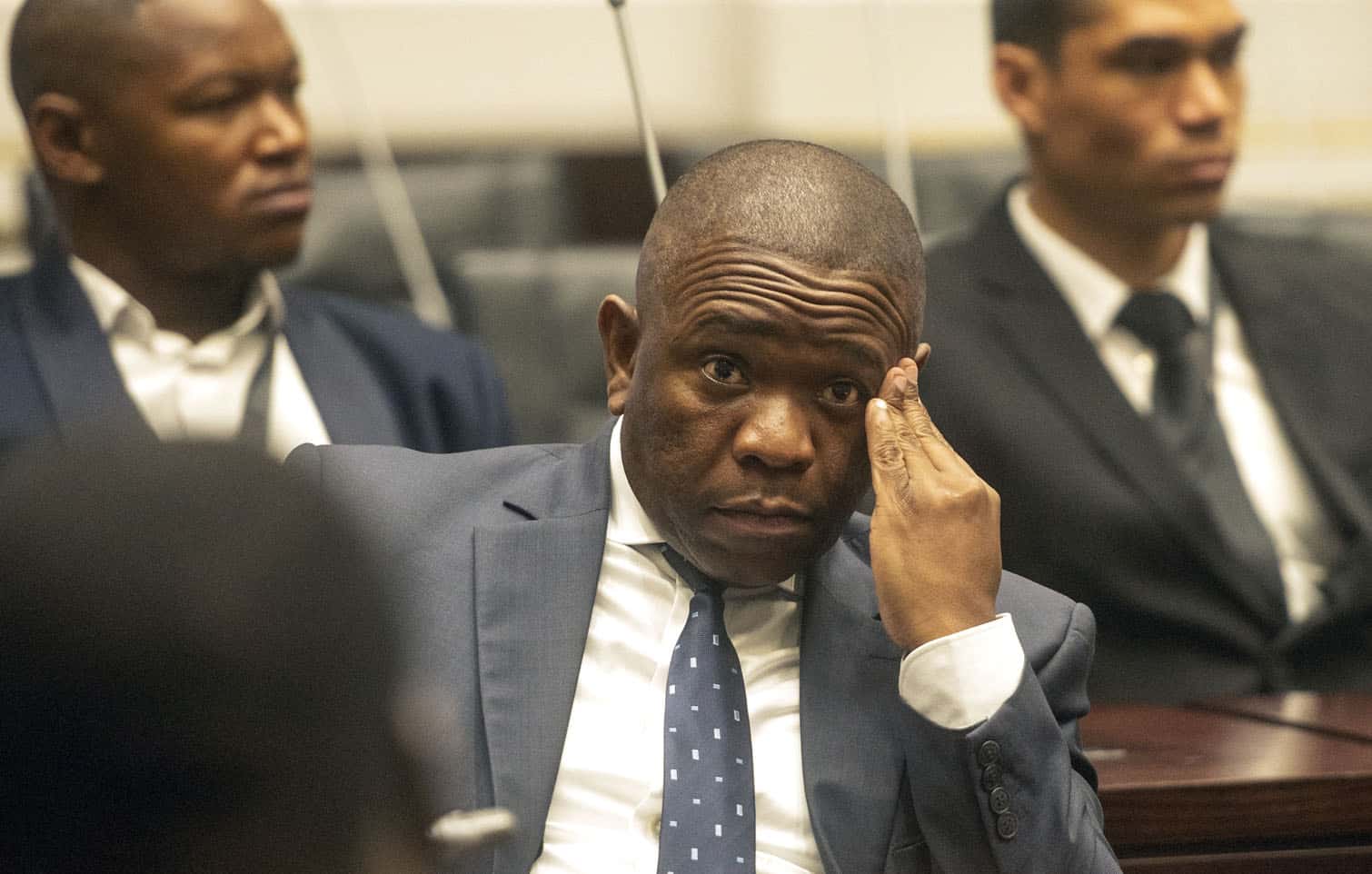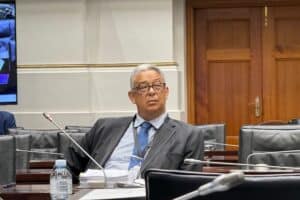Parliament should be taken seriously, including by its members, even if it has been caught with its pants down.

When I was a child, I didn’t like the circus much – especially the clowns.
It was the big nose and exaggerated face painting that scared me more than their silly tricks could entertain me.
Parliament is full of clowns pretending to be MPs, and their silly antics are doing their best to distract from the realities of corruption and potential state collapse.
As outlined in the Constitution, Parliament is “elected to represent the people and to ensure government
by the people”. It holds legislative authority in the country and serves as a tool to oversee the government’s work, elect a president, and even change the very constitution that grants it this power.
It is a lethal tool, but it is handled too often like a political blunt knife by members of parliament who are far more interested in feeding egos, collecting a salary, and advancing their political careers than serving the people who put them there.
As a result, as seen with Parliament’s ad-hoc committee investigating political interference and collusion with criminals within the SA police force, it is not taken seriously.
A circus in Parliament
Nearly three months after it was formed, and following several back-and-forth meetings to thrash out the needed nuts and bolts, it finally began its work this week. And within minutes of calling its first witness, it hit an embarrassing speedbump.
KwaZulu-Natal (KZN) Provincial Police Commissioner Lieutenant General Nhlanhla Mkhwanazi had not given an original statement to the committee to kick it off; instead, his team delivered a supplementary statement because they believed it would be pretty much the same testimony he had given to the Madlanga Commission of Inquiry weeks earlier.
MPs were right to be outraged at this and to demand that both respect and due process be followed.
It was a lazy move, but it should have been picked up by the committee’s staff before the light came on and the cameras started rolling. Police committee chairperson Ian Cameron was right that such moves “further damage Parliament’s credibility,” and South Africans expect more.
It is not the first misstep staffers have allegedly made, with EFF leader Julius Malema alleging last week that some public complaints were being ignored and refused to be put on the agenda for possible discussion by MPs.
ALSO READ: A VIEW OF THE WEEK: Who do you call when the police don’t respond?
Integrity of Parliament
To the MPs’ credit, after the humiliating start, they pushed through the night to hear Mkhwanazi’s testimony and demonstrated their willingness to try to meet the month-end deadline for the inquiry to be wrapped up.
Still, a cloud hangs over the whole inquiry. Why had the Portfolio Committee on Police not acted when Mkhwanazi first raised the alarm to them in March 2025? And why were certain members who had possible conflicts of interest, like Dianne Kohler Barnard, sitting on the committee?
Either some in the committee were sleeping on the job or were just hoping to get it over with, but the implications are serious for all of South Africa.
The third act in the circus, which was day one of the ad-hoc committee’s inquiry, saw a lengthy debate about the recusal of Kohler Barnard. It undermines the integrity of Parliament not only that alleged conflicted individuals are on committees, but also that politicians who are implicated in wrongdoing and allegedly tied to misconduct, corruption, or maladministration are elected by their parties to represent the public in Parliament.
On the second day, Wednesday, he argued that Parliament was passing budgets that make prisoners’ lives “comfortable”, and, along with a judiciary that granted bail too easily, was contributing to “an unending crime scene” that had become a lived reality in South Africa.
This is a fact we need to face and act on, especially when it is estimated that between 86% and 94% of convicted criminals reoffend.
No corrupt officers being caught
And the rot extends to the police too.
Despite Mkhwanazi’s crusade to “right the wrongs” of the police, not a single police officer faced disciplinary action for alleged corruption in the first quarter of this year.
With “cold drink” money flowing from roadblocks every day like a burst sewer, and with a police minister on special leave for allegedly being in bed with corrupt characters, this statistic is not “progress against corruption” but an admission that the force has collapsed.
And when it is the biggest national government agency, the collapse of the country may not be too far behind.
And that is why we should all be scared. Not only of clowns, but also of those in Parliament and the state of police in SA.
NOW READ: EFF: The big bad wolf that turned sheep?






